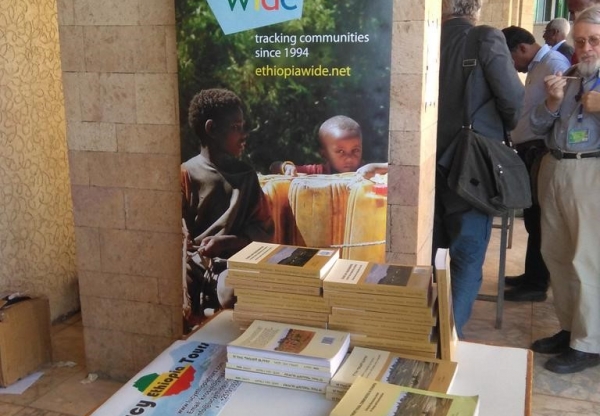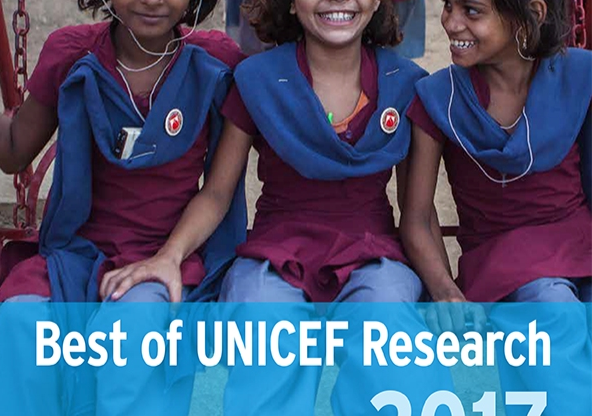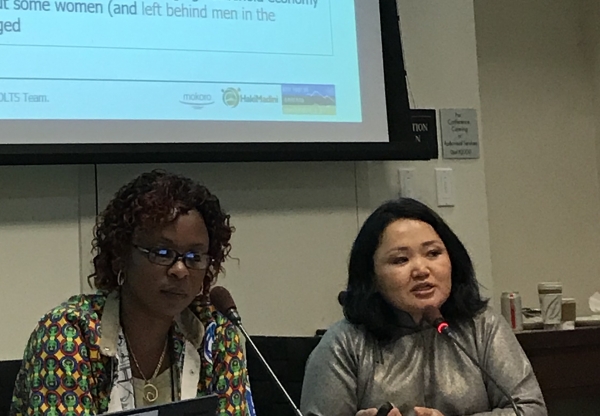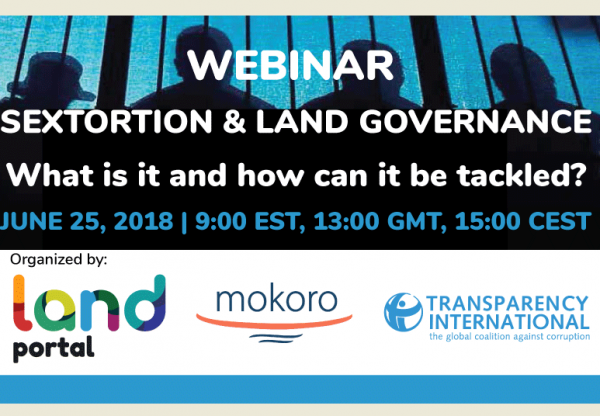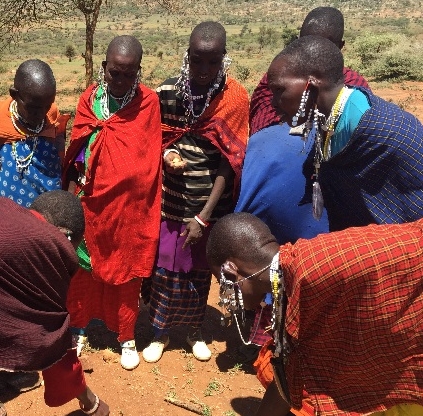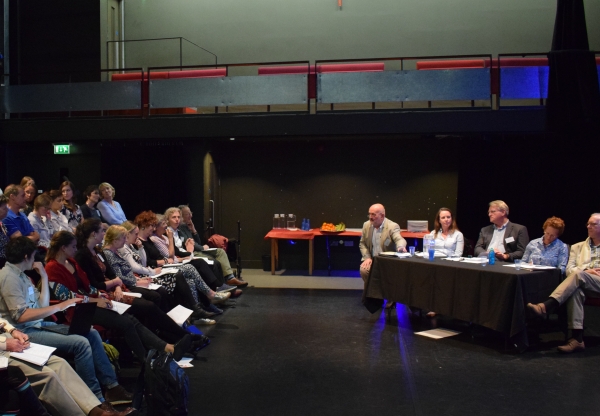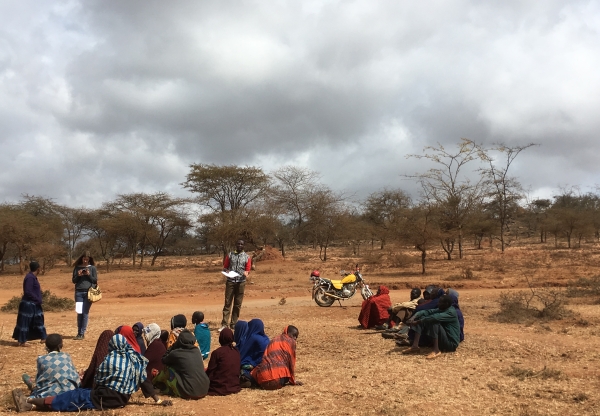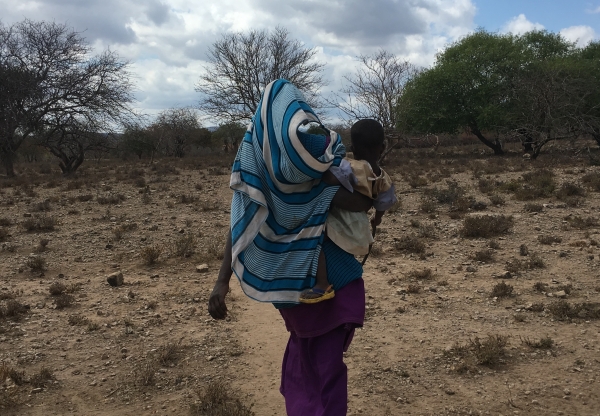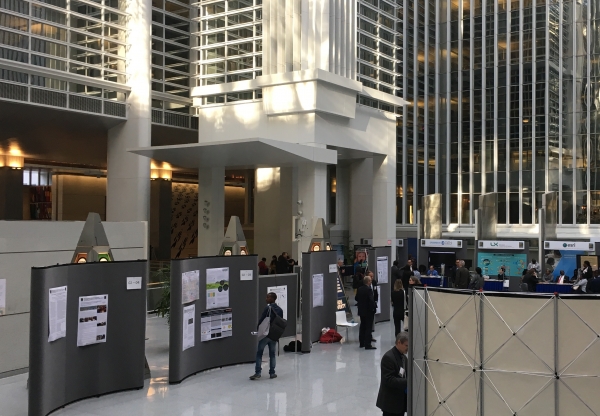Mokoro
Supporting international development
News
8 October 2018
From 1st to 5th October 2018, following their participation in the conferences organised in Dire Dawa (2012) and Warsaw (2015), twelve members of the WIDE team participated in the 20th International Conference of Ethiopian Studies that took place in Mekelle. This was made possible by funding from the Swedish Agency for International Development.
The conference, the 20th to be held since 1959, brought together over 500 scholars from all over Ethiopia and other countries with a tradition of research in Ethiopia. The week offered a wonderful opportunity for scholarly debates across a wide range of disciplines and topics. With other longstanding WIDE Ethiopian colleagues and newer members of the team, Pip Bevan, Catherine Dom, Alula Pankhurst and Sarah Vaughan organised a panel entitled ‘Globalisation and Rural Ethiopia’ speaking to the theme of the conference ‘Regional and Global Ethiopia – Interconnections and Identities’. A total of fourteen papers were presented at the well-attended panel (over 50 participants), of which twelve were based on new empirical data collected by the WIDE team earlier in 2018.
The conference also offered the opportunity for the team to distribute free copies of the ‘WIDE book’, published in Addis Ababa in January 2017 and based on earlier-made empirical data (Change and transformation in 20 rural communities in Ethiopia: Selected aspects and implications for policy, edited by Alula Pankhurst).
The presentations given by the WIDE team at ICES20 are available to download here.
28 August 2018
Mokoro’s work piloting a financial benchmark for child protection in Indonesia was included in the ‘Best of UNICEF research 2017‘ publication. This report showcases some of the best and most innovative pieces of research coming out of UNICEF.
Government funding for child protection programmes often lags behind and expenditure estimates are unreliable. In 2014, Mokoro worked with UNICEF to establish a financial benchmark methodology that aims to provide an accurate estimate of a country’s per-child expenditure on child protection and to compare that with its spending per person overall. The objective was not only to better measure national expenditure on child protection for analysis and advocacy purposes, but also to allow for a degree of comparability across and within countries over time. This research in Indonesia piloted the application of this methodology for the first time. The assignment was led by Alta Fölscher. Mokoro has since applied the methodology in Afghanistan, Côte d’Ivoire and Nigeria.
The editors of ‘Best of UNICEF research 2017’ commended the research approach to this piece of work, which was co-designed and jointly implemented by UNICEF staff and consultants. This provided an effective means of capacity-building for UNICEF staff, as well as allowing broader access to government counterparts, thus enabling contextual insights through engaging potential research users. The internal reviewers also highlighted its innovative attempt to better document the costs of child protection programmatic interventions and to develop a systematic methodology for further financial benchmarking and replicability – a difficult area given existing data limitations. The authors were also commended for honest documentation of some of the limitations of the data and research findings.
16 July 2018
Mokoro team members, Alta Fölscher (Team Leader), Christine Fenning and Stephen Turner, attended a Technical Gathering on the NIPN initiative in Paris from 3 – 5 July 2018. Over 60 participants from the ten participating countries (Bangladesh, Burkina Faso, Côte d’Ivoire, Ethiopia, Guatemala, Kenya, Laos, Niger, Uganda, and Zambia), as well as donor representatives and technical advisors, were present at this conference, which had been organised by the NIPN Global Support Facility staff.
The NIPN initiative was launched by the European Commission in 2015 and is also supported by the United Kingdom Department for International Development (UK DFID) and the Bill & Melinda Gates Foundation (BMGF). Its goal is to support countries that are part of the global Scaling Up Nutrition (SUN) movement and are committed to deliver evidence-based programmes and interventions to improve human nutrition in their progress towards the 2030 Agenda’s Sustainable Development Goal (SDG) 2 to “end hunger, achieve food security and improved nutrition and promote sustainable agriculture”. The main objective of the NIPN initiative is to create country-led and country-owned NIPNs to strengthen countries’ analysis of nutrition information to better inform policies and programmes for improving nutrition.
The Mokoro team are currently conducting a mid-term review of the NIPN initiative and were pleased to be able to interview the key stakeholders at this early stage of the review process and observe discussions. Lively discussions were held on how best to organise and analyse existing data and make it most useful and accessible for decision makers. Despite these ten countries coming from very different contexts, the need for a more systematic approach to (existing) data collection/compilation and the importance to policy and decision-makers was clear. The Mokoro team are now assessing how well things have been going so far. They will be carrying out further interviews with key stakeholders to add to those conducted in Paris. Later in July they will investigate two NIPN countries’ experience to date in more detail, with visits to Bangladesh and Guatemala.
9 July 2018
WOLTS team members Lkhamdulam Natsagdorj and Jim Grabham attended the very enjoyable first edition of the World Bank’s Global Conference on Gender in Oil, Gas and Mining on 26-27 June 2018. Mokoro is delighted to have published a blog piece inspired by this two day event and our recent WOLTS work, written by Lkhamdulam: “‘A woman has long hair but a short brain’ – Reflections on an old Mongolian saying”. This piece has been simultaneously published in our Mokoro newsletter and on the Land Portal’s blog page. Lkhamdulam reflects on a recent WOLTS gender training session in Mongolia and the importance of education in challenging discriminatory gender norms, a theme which took centre stage at the Gender in Oil, Gas and Mining Conference. Read Lkhamdulam’s blog here.
In case you missed them, our two WOLTS country research reports are now both available online, “Gender, Land and Mining in Mongolia” and “Gender, Land and Mining in Pastoralist Tanzania” can both be downloaded here. Please sign up to keep in touch with WOLTS latest news via our webpage here.
6 July 2018
Mokoro were very pleased to co-host an interactive webinar on sextortion in land governance with Land Portal Foundation and Transparency International in June 2018. The webinar featured an interactive discussion among expert panelists led by a facilitator, followed by a question and answer session with webinar participants. Mokoro’s Elizabeth Daley was one of the panelists, alongside Marwa Fatafta (Regional Advisor for the Middle East and North Africa, Transparency International), Amani Mustafa Mhinda (founder and Executive Director of HakiMadini), and Muchaneta Mundopa (Executive Director, Transparency International Zimbabwe). Farai Mutondoro, Senior Researcher and Programmes Coordinator at Transparency International Zimbabwe, moderated the event.
This webinar explored the following questions:
- What does ‘sextortion’ mean and how is it relevant to land governance? Participants will hear about (and have the opportunity to share) concrete examples and experiences.
- What are the primary challenges to discussing and addressing sextortion?
- How can sextortion be tackled and what is needed to bring sextortion higher on the agenda of the land governance and anti-corruption communities?
To listen to the event, visit the LandPortal website.
20 June 2018
“Gender, Land and Mining in Pastoralist Tanzania” is the product of rigorous field research over two years in collaboration with Tanzanian CSO, HakiMadini.
Significant stresses from mining, population growth and climate change, as well as disturbing levels of violence against women have been uncovered in this study of two traditional pastoralist communities in Tanzania. Initial findings are based on repeat rounds of participatory fieldwork by the WOLTS team and have already received official attention at national and local level.
To download the full report and a summary of key findings and recommendations please visit the WOLTS web page.
19 June 2018
At the end of May, Mokoro were delighted to host a seminar on evidence. ‘How can we collect better evidence for development?’ was hosted in partnership with the Oxford Network of International Consultants (ONIC). Speakers included Jon Bennett (Consultant, ONIC), Claire Hutchings (Head of Programme Quality, Oxfam), Abby Riddell (Associate Consultant, Mokoro), and John Rowley (Consultant, ONIC). We were also very pleased to have Adam Leach, Director and Consultant at Mokoro, to chair the event.
The seminar explored some of the challenges and opportunities for monitoring and evaluation in international development. The demand for generating evidence, reporting results and measuring impact has increased in recent years. Mokoro brought together these experts with a wide range of sectoral experience to explore ways of collecting evidence to assess the impact of development interventions, a politically charged issue as can be seen by recent calls for UK aid funds to be used instead to support the NHS. The speakers discussed how donors, implementing agencies and other actors can work together to collect useful evidence that helps us understand and communicate the complexity of international aid programmes and contributes to meeting the needs of the people who are supposed to benefit from them by giving a better idea of what works and what doesn’t.
25 April 2018
Mokoro have published a thought-provoking blog piece giving a male perspective on working to strengthen women’s land rights. The piece, titled “Being a man on a gender project – some insights from the field”, has been written by Jim Grabham with Ezekiel Kereri, two key team members of our WOLTS project team. In it, they share their reflections from carrying out gender-focused participatory research on land, mining and pastoralism within two Maasai communities in Tanzania. The blog has been simultaneously published in our Mokoro newsletter and on the Land Portal. Read the blog here.
6 April 2018
Mokoro hosted a round-table discussion on ‘The Long Struggle for Land Reform in Kenya’ on 19 April 2018 in Oxford.
The meeting, chaired by Robin Palmer (Mokoro), included Odenda Lumumba (CEO, Kenya Land Alliance), Martin Adams (Mokoro), and Francesca Di Matteo (PhD student, the University of Marseille) as key participants, joined by a selection of others with a personal or professional interest in the subject matter.
Informal presentations on the development of land reform law and policy in Kenya were followed by a discussion under Chatham House rules.
15 March 2018
Mokoro Principal Consultants Elizabeth Daley and Christopher Tanner enjoyed a productive trip to Washington in March, meeting with friends and colleagues at the World Bank’s 19th Annual Conference on Land and Poverty. Elizabeth shared findings from the WOLTS project’s research on gender, land, mining and pastoralism in Mongolia and Tanzania in Session 01-13 (Creating Momentum for Land Policy Change). Christopher presented on “Land Rights, Inclusive Development and Benefit Sharing to Achieve CO2 Emissions Reductions” in Session 07-07 (Community Rights for Environmental Change). Details about the conference can be found here.

